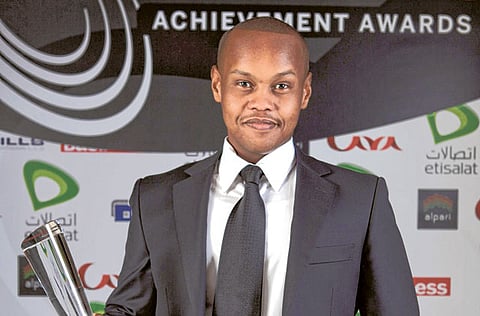Diabetes invention inches closer to development
New award sees continued recognition for Baloola

Dubai: It may have already been three years but Mohammad Baloola's invention of a ‘remote monitoring and control system for diabetics via mobile phone' inches closer to production due to continued recognition.
The Ajman University of Science and Technology (AUST) graduate was the recent recipient of the science and innovation award at the Arabian Business Achievement Awards, after having already won Dh40,000 on the Tumoohat Shabab (Young Ambitions) programme, produced by Sharjah Television earlier this year.
"I did not nominate myself for the Arabian Business award," said Baloola. "I think they found me from their own research."
In 2008 the Sudanese national, and now biomedical engineering teaching assistant at AUST, created an artificial pancreas and a remote system that monitors the stability of glucose levels in diabetics. The monitoring happens through a mobile hand-held device linked to a hospital database system accessed by the patients' doctors.
His invention stemmed from his concern for the growing number of diabetics worldwide and was prompted by the fact that his father, mother and brother are all diabetics.
Growing interest
Since Gulf News last spoke to Baloola earlier this year, he has managed to shed 40kg because of the high risk he has of developing diabetes and he has also garnered much interest for his device.
"Since April I've had a few offers from companies and investors looking to help me develop my product," he said. "But I'm waiting for leading companies specialised in diabetes devices and active in the research field."
He added he is holding out for the likes of General Electrics, Siemens, Phillips or Roche because he wants to ensure accurate and quality implementation of his device. "There are Far East Asian companies ready to start manufacturing the devices but I don't want to put my name to something not of the highest quality," he said.
"The bigger names are trusted health care leaders and although working with them may raise the price of the device a little, I know it will be high grade production."
Baloola said his aim was to ensure the price of the device was the same as that of a regular glucose meter found in shops, which costs anywhere between Dh150 and Dh300.
He has also been continuously working to upgrade and further develop his invention, with a plan now to expand the database across a global network.
"I've been working on making the database a global system because at first it was very locally focused," said Baloola. "But I've thought of making the database an information storage bank, which could in itself double as a diabetes research centre."
Sign up for the Daily Briefing
Get the latest news and updates straight to your inbox


